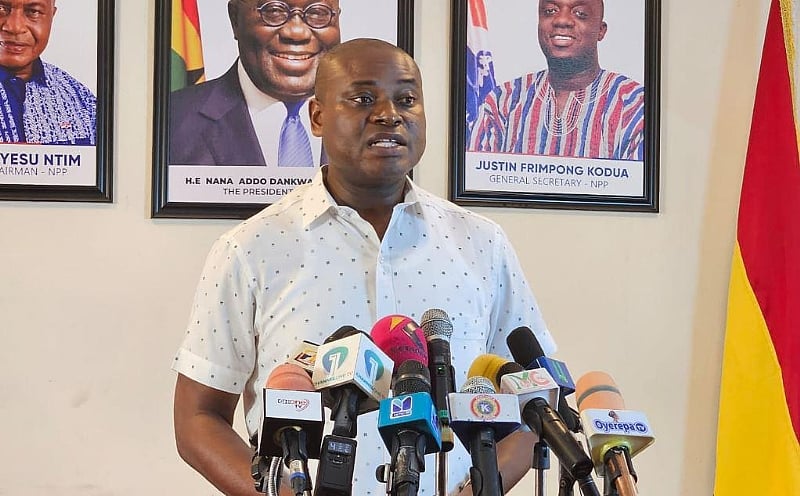The New Patriotic Party (NPP), through its National Communications Director, Richard Ahiagbah, has articulated its stance on the fight against corruption, emphasizing a commitment to legal processes while denouncing what it perceives as politically motivated tactics employed by the ruling National Democratic Congress (NDC). Ahiagbah’s critique centers on the Mahama administration’s approach, which he labels as reckless and constitutionally unsound, particularly regarding the Attorney General’s handling of corruption cases. The NPP spokesperson argues that the pursuit of justice should be guided by established legal frameworks, not by partisan political agendas. He contrasts this principled approach with the NDC’s alleged use of “media trials” and inflammatory rhetoric, which he views as detrimental to the integrity of the justice system and the rights of individuals.
Ahiagbah specifically takes issue with President Mahama’s characterization of Ghana as a “crime scene,” deeming such a declaration irresponsible and unnecessarily alarmist. He contends that this dramatic portrayal, coupled with the Attorney General’s alleged reliance on media pronouncements rather than courtroom proceedings, serves to create a politically charged atmosphere that undermines due process. The NPP spokesperson insists that the focus should be on securing convictions based on solid evidence presented in court, not on generating public spectacle through media pronouncements. He accuses the government of prioritizing the creation of a narrative of widespread corruption for political gain, rather than diligently pursuing justice through established legal channels.
The core of Ahiagbah’s argument rests on the distinction between legitimate anti-corruption efforts and what he perceives as politically motivated persecution. He posits that the NDC, under the guise of combating corruption, is engaging in tactics designed to damage the reputations of political opponents and sway public opinion. This, he argues, is a perversion of the justice system and a dangerous precedent for a democratic society. Ahiagbah underscores the importance of upholding civil and human rights, even for those accused of wrongdoing, and insists that these rights should not be sacrificed for political expediency. He frames the NDC’s approach as a threat to the rule of law and a departure from democratic principles.
Ahiagbah directly addresses Attorney General, Dr. Dominic Ayine, challenging him to present his evidence in court rather than resorting to what are described as “media stunts.” He argues that using the media to disseminate information about ongoing investigations, before presenting evidence in a court of law, prejudices the public and potentially jeopardizes the fairness of any subsequent trial. This, according to Ahiagbah, amounts to trying cases in the court of public opinion, which is not only inappropriate but also undermines the integrity of the judicial process. He calls for a return to a system where accusations are tested through rigorous legal procedures, rather than through media pronouncements.
Furthermore, Ahiagbah emphasizes that the public is not interested in mere allegations of corruption but in concrete convictions. He suggests that the NDC’s focus on publicizing accusations, rather than securing convictions, indicates a lack of genuine commitment to fighting corruption. He implies that the government’s strategy is more about creating a perception of action against corruption than about achieving tangible results. This, he argues, is ultimately counterproductive and erodes public trust in the government’s ability to effectively address the issue of corruption.
In summary, the NPP, through Ahiagbah’s statement, draws a sharp distinction between its approach to fighting corruption and that of the ruling NDC. The party advocates for a process grounded in the rule of law, respecting individual rights and adhering to established legal procedures. It criticizes the NDC for what it perceives as a politicized approach that prioritizes media narratives over due process and convictions. Ahiagbah’s statement calls for a return to a system where the fight against corruption is pursued through the proper legal channels, ensuring fairness, transparency, and respect for the rights of all citizens. The statement ultimately serves as a critique of the government’s handling of corruption allegations and a call for a more principled and legally sound approach to tackling this critical issue.


